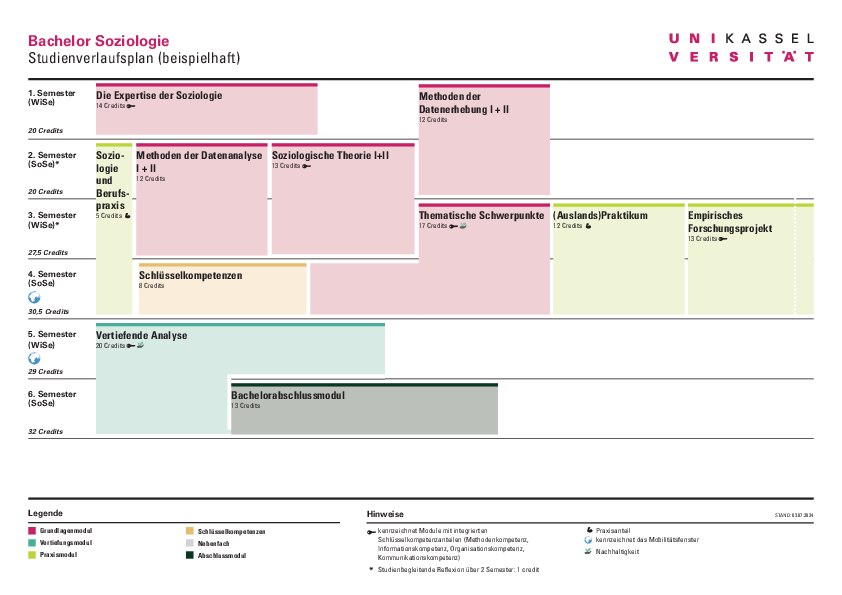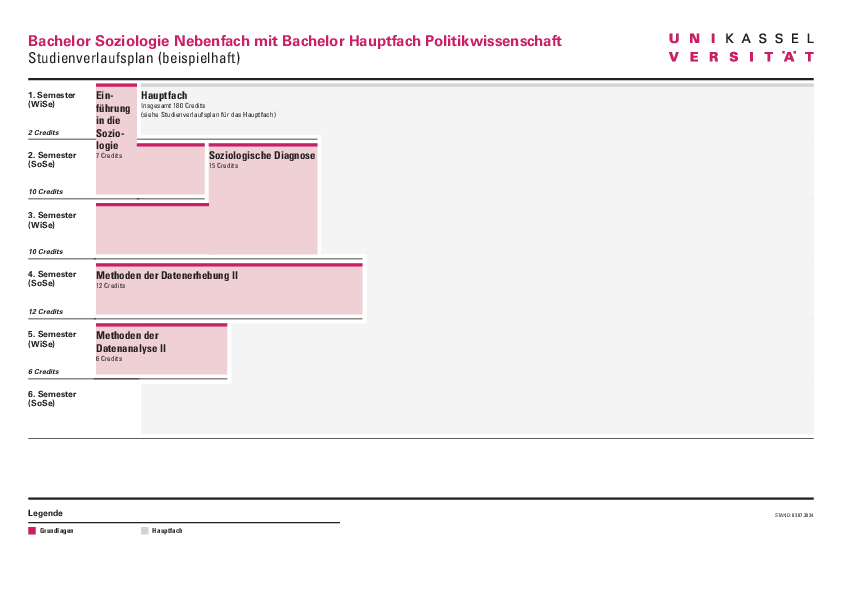How is the course structured?
This page contains automatically translated content.
In the basic modules in the first year of study (1st and 2nd semester), you will gain an insight into the expertise and professional fields of sociology. You will become familiar with the content, theories and methods of sociology and will be taught the techniques of academic work. To this end, you will attend tutorials and seminars in which you will work together in small groups, as well as lectures that provide a broader overview of the respective content and profile of sociology in Kassel. Students and lecturers reflect together on sociology and its contribution to society in a "study-accompanying reflection".
In the second year of study (3rd and 4th semesters), you will apply your acquired knowledge to various social fields and learn to analyze current social change processes using examples. You can choose from a wide range of topics. In a two-semester empirical research project, you will learn how to carry out an empirical survey and evaluate the data obtained. Knowledge from theory and empiricism is combined. The compulsory internship is prepared with a lecture to which we invite "practitioners" who report on their professional experience. The internship is followed up in a seminar and reflected on in relation to the degree course.
Building on this, theoretical and methodological knowledge is deepened in the third year of study (5th and 6th semesters) and questions are developed independently. The degree program concludes with a Bachelor's thesis. This underpins your professional expertise and your potential contribution to a specific professional field or your suitability for a Master's degree course.

